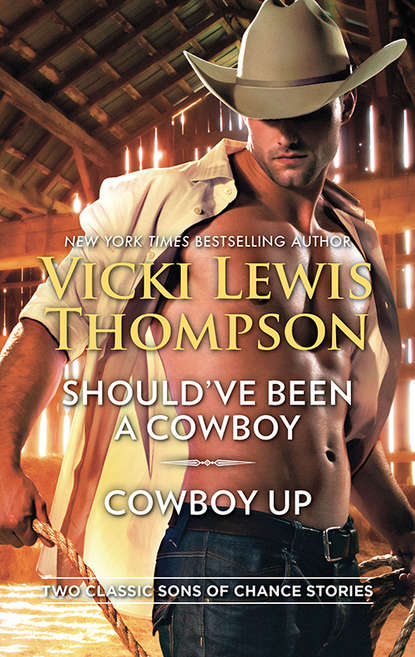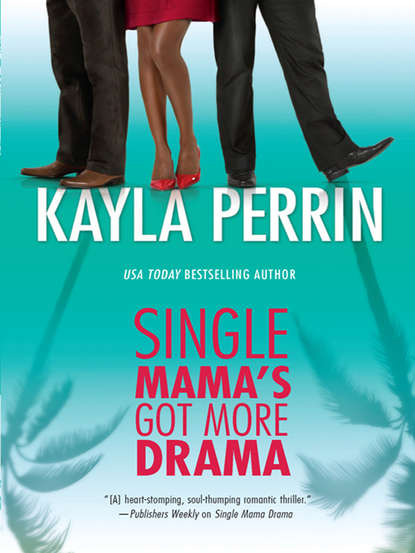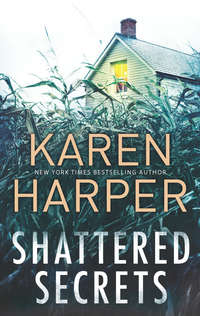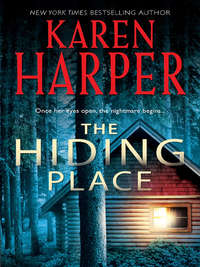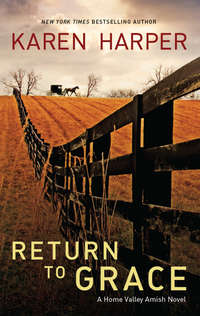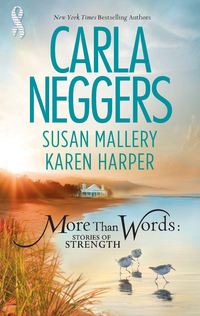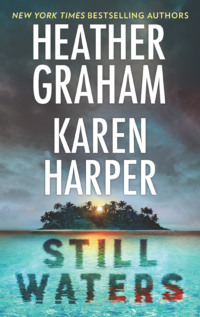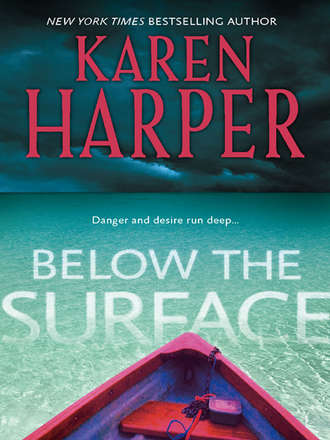
Полная версия
Below The Surface
“Motor’s too loud to hear you!” he told her, only to see her cringe. “What is it? What’s the matter?”
“I agree about the motor. Your voice—I’m hearing sounds sharper than I did before, that’s all. It’s nothing. Okay, I’ll start over. First off, if you’re used to diving in the Caribbean or even in the Keys, the water’s going to look really different here, not so clear. We’ll both take dive lights. Manny brought two dive lights along, didn’t you, Manny?” she asked, craning around toward the back of the boat so he could hear her.
She almost bumped noses with Manny since he was leaning so close to her. “Always got two of everything on board,” Manny told her, sitting up straighter. “Usually for you and Daria.”
Bree just nodded. When she turned back toward him, Cole saw she had tears in her eyes.
“Go on,” he prompted. He was grateful she seemed to be thinking clearly, despite the fact her emotions were right on the edge.
“We’re only going down to thirty feet,” she explained, “so we won’t have to decompress, but we’ll take a three-minute safety stop at fifteen feet, both entering and ascending. The wreck lies in a small, natural trough.”
“What’s the visibility at that depth?”
“Vis varies a lot out here, from six inches to sixty feet, but since we evidently aren’t getting a storm today, it could have settled down to ten or twelve, especially since the incoming tide will bring in clearer water. I’ve got to find that camera.”
“Let’s just say we’ll check for the anchor today. Set reasonable goals. We can’t search a vast area on this dive.”
As if she didn’t hear that, when he knew she did, she continued. “The camera’s in a plastic housing, which mutes the red color I’ve painted it, especially since all reds disappear about fifteen feet down. At the depth we’re diving, everything will look green, yellow or blue.”
“I remember. Bree, we should keep this dive short.”
“We need to cover a certain area,” she countered.
Cole was not used to being told what to do. Damn, this woman was stubborn, but maybe that came with being strong.
“I never would have done a dive alone that day,” she admitted, suddenly changing the topic. She kept fussing with her mask she held in her lap. “But Manny needed time to patch up the generation gap with his daughter and couldn’t go. It was the fifty-seventh dive we’d made at the Trade Wreck without incident, photographing and recording the growth of the turtle grass there. Daria had a really bad toothache that came on fast, so I said I’d go down alone. It only takes about twenty-five minutes. The storm was a distant line on the horizon, and the marine weather forecast hadn’t mentioned it could come in so fast or hard.”
“I know. So you anchored nearby but not where the anchor could disturb the site,” Cole said, when she frowned out over the water.
“Right. The submerged aquatic vegetation—SAV—is very delicate and not doing well. We always joked that our motto for this Clear the Gulf Commission project would be Save Our SAV.”
Her voice trailed off and her eyes took on a faraway look. Was she seeing a scene with her sister? He bumped her shoulder gently, and she seemed to come back from wherever she’d been. He was going to have to stick close to her down there, though she was obviously the more skilled diver.
She went on. “The report we were preparing to give the commission—and the media—next week would not be good news. The poor and declining quantity and quality of the sea grass indicates that the whole marine ecosystem here is still struggling from the increasing industrial and toxic runoff. Too many people means too much pollution, and that extends to the Trade Wreck sea grass meadow, which we’re using as a sort of touchstone and symbol for the health of this entire area of the gulf. And it’s sick.”
“A dire report could mean cutbacks, penalties and political fallout for lots of important people. When the foundation of the marine food chain is screwed up, it’s trouble for every living organism all the way up to humans, and that equates to millions of dollars in fishing, real estate and the tourist trade. Had you told anybody about your findings already?” he asked.
“We weren’t keeping it a secret,” she admitted. “You’re thinking someone might want to warn us or stop us from releasing that? But everyone with interests in those things you just mentioned would want the environment to stay safe. They’d want to know what our report says so the situation can be fixed by concerned citizens, environmentalists, scientists, politicians—everyone.”
“Back to our dive. We can’t search the entire area for a camera.”
“I’m hoping it snagged on either the Trade Wreck or another artificial reef nearby.”
He nodded. “I heard there’s one about three miles off Keewadin, where you came in.”
“Right, the Stone Reef. That one’s not a wreck but limestone boulders. I don’t know if the camera would just go to the smooth, sandy bottom and stay put, or if the tides and currents would move it south until it snagged in one reef or the other.”
“So what’s the Trade Wreck like?”
“It’s a supply ship sunk in the late 1930s, made of wood and metal. It broke apart but what’s there is pretty well preserved.”
“Do you use GPS coordinates to locate the site? I don’t see that equipment on board.”
“Our only GPS is on the bigger boat, but we’ve been out here so much, it’s half instinct and half compass coordinates. You’ll be glad to know it’s ordinarily a safe dive, with no sharks out here. I think the rough water or sudden change in barometric pressure from the storm yesterday stirred them up.”
“I was wondering if you still remembered the sharks. You must have swum with them. Some followed us into shore in the sloop.”
“I don’t want to think about that,” she said, shaking her head. “At least the only big fish usually around the Trade Wreck is a resident grouper Daria and I named Gertie…”
She sniffed hard. Tears welled up in her eyes again, and she bit her lower lip. He wanted to put his arm around her, but he just held on to the rail tight as Manny turned them in a slow circle and killed the motor.
Bree usually felt at one with the sea and completely relaxed during her dives. But not today. She wore a high-volume mask that had more airspace and side ports so she could see sideways without turning her head. She’d worn this old day-Glo-pink wet suit partly because it had a pocket on both upper thighs for a dive knife. She carried two knives, hoping Cole didn’t find that strange and that Manny would keep quiet about how abnormal it was.
But everything was abnormal. She had the worst feeling something evil was lurking underwater. At least she had Cole along. Though she didn’t like to think of Cole as a bodyguard, she felt much safer near him. It was obvious that Josh and Nikki Austin felt that way with their pilot-PR man-bodyguard, so why shouldn’t she admit the same to herself? In ordinary circumstance, the idea of this compelling, virile man guarding her body would be to die for—damn, why had she thought of it that way?
She’d used a plastic sleeve to cover the bandage over her burn and wore her old dive watch on her right wrist. She’d have to call the hospital to ask where the one Daria gave her went, because it might be the last gift…the last…
She turned back to her preparations. They screwed on their pressure gauges and checked the air fill, then hooked up their regulators and sucked on them. Bree heard the familiar hissing of gas and the click of the valves, but so much louder than usual.
They back-rolled over the boat rail and went under in a rising blur of silver bubbles. When the cloud cleared, Bree looked for Cole and saw he was above her with only his big body visible, as if he had been decapitated. He must have stuck his head out of the water to say something to Manny.
Waiting for him to join her, Bree racked her brain to recall if she had looked up at the surface or even over at the anchor yesterday while she took photos, made measurements and took notes. When had Mermaids II left? If a second hull had loomed above, she would not have seen it in the low vis and increasing turbulence, but she should have heard an unfamiliar motor. Or had she been too rushed, too intent and busy to note sounds? Usually, even the bothersome little wave runners zipping here and there made a distinctive sound, and she was good at differentiating motor reverberations, from buzz to hum to roar, depending on the size of the vessel.
Cole upended and kicked down to join her at fifteen feet for their safety stop. They were diving the anchor line, but didn’t hang on to it, just near it. From watching him come down and reverse his position to stay stationary beside her, she could tell he was a good diver.
They hung suspended, facing each other, kicking slowly in unison, barely moving but nearly touching. There was something intriguing and intimate about being here like this with him, hidden, close, almost motionless, suspended as if they lay side by side. Although the vastness of the sea was her favorite place to be, Cole DeRoca made her feel small. She wanted his protection, but the turbulent sensations he stirred in her made her also feel out of control and she could not afford that, especially not now. Find clues, she told herself. Find clues to find Daria.
Through their masks, they looked below toward the two gray, shadowy, separate sections of the fifty-foot wreck. Yet their gazes returned to hold each other. Bree forced herself out of the deceptively peaceful lull. She nodded and they swam down toward the wreck with her leading.
The supply boat, named the Charlotte G. Loher but referred to by most local divers as the Trade Wreck, had sailed out of Tampa bound for Key West with cattle in the pre-highway days of southwest Florida. Caught in a hurricane, it had broken into two sections. The stern had settled on its hull, but the midship and the prow lay on its port side. With several entrances into the interior of the ship, it had long been an attraction for divers, though it was labeled a hazard dive now for its rusted, jagged edges and unstable structure. The twins had a theory that the increasing pollution in the gulf had accelerated the disintegration of its wood and metal. One of the wreck’s bizarre attractions was that occasionally, even now, the skull of a steer would float loose from the innards of the ship to gape eyeless out a porthole in the hull or emerge from the dark entry to a mazelike corridor. The twins had never taken one for a dive trophy, but they knew more than one bar or family room that boasted a skull from the Trade Wreck. Bree realized, too late, that she had forgotten to mention that to Cole.
As the wreck loomed closer in the shifting soup of the sea, they clicked on their lights. Bree startled. She was used to things looking twenty-five per cent larger underwater, but she hadn’t been prepared for the increased brightness even here. Perhaps her heightened perceptivity of sound and light could be a blessing. The backscatter of tiny, drifting marine organisms stood out brilliantly. Their slow, swirling movement made her dizzy, but she shook that off. Anyway, this close to possible answers, she was not turning back.
A three-foot sea turtle swimming above the debris eyed them, then glided away. When they swam over and hovered above the sparse sea grass meadow, tiny, spidery arrow crabs with fuzzy topknots seemed to stare at them, but they saw no Gertie the grouper and no camera snagged anywhere here or on the sand flats.
Bree noted that the storm had pulled a few strands of grass loose. Of the fifty-two species of marine sea grass worldwide, only about four of those were widespread in Florida. Her precious turtle grass—fancy biological name Thalassia testudinum—was the most hardy, with its deep root system and sturdy runners from which grew blades of graceful, bright green grass. Most of the sea grass meadow stood about fourteen inches tall and shifted its gentle, ribbonlike blades in harmony with the currents. It should love the relatively shallow waters here but, as she’d told Cole, it was struggling to survive here—just as she was, she thought.
But she had no time for her beloved project right now. They swam back toward the wreck, playing their yellow beams ahead of them. Sometimes Cole’s shaft of light seemed to dance with hers. If only her camera had caught here on the exterior of the ship, and if only it had captured some clue to what happened on the surface.
Bree motioned to Cole, and they swam the area around the wreck in broadening circles, searching for the camera and the anchor. Cole was not letting her out of his sight. When she motioned he could go one way and she the other, he shook his head and swam right on her tail.
And then they saw something. Both their beams shone dully off the links of a chain, which they followed to the half-buried anchor itself. Yes, their new anchor and chain! It was at least thirty feet from the position of the anchor and rope from their smaller skiff today. When Cole held his hands up in a questioning gesture as if to ask her if that was her anchor, she nodded, but her heart sank.
Daria never would have thrown the entire chain overboard, not unless something terrible—more than an approaching storm—had made her flee fast. Or had someone else thrown it over? And if that someone had wanted the Mermaids II, would they have also thrown Daria overboard?
The find filled her with frustration and fury. She had to locate that camera now at all costs, even if it meant going a ways into that broken, rusting old wreck.
She led Cole back in that direction, and they swam the entire length of where the camera might have drifted down or been snagged against the ship by the incoming tide. It was just over twenty-four hours ago now. How could so much have happened so fast? Twenty-four hours—like Sam had said, a new wreck only released a trail of bubbles for that long. Daria, even if the boat went down, tell me you didn’t go with it! I made it in. You must have, too!
They saw no sign of the camera, so they started back, this time peering into nooks and crannies where it might have caught. Bree berated herself that she hadn’t somehow kept the camera with her in the storm, however heavy and bulky. Using both their lights, they illumined each dark entry spot until—
Bree jerked back. Oh, it was just one of those cow skulls, bobbing on the other side of a thick glass porthole. When they’d first dived this wreck with their father years ago, the portholes had been covered with algae, but that, too, had been done in by the lack of oxygen in what some called dead water.
She tried to fight off the images that being this close to the wreck often triggered in her. Whenever she could, she ignored the ship’s ruins and just concentrated on the sea grass meadow. She and Ted had dived this wreck just before they’d broken up, the summer before their junior year of college. The two of them had always called this wreck the Titanic, not because of its size, but because they’d seen the movie just before they’d first dived it together.
As bold as Bree was underwater, that movie had shaken her to her core. The scene where Kate Winslet and Leonardo DiCaprio had stood together at the top of the ship as it was sinking into the cold Atlantic had not just scared her but haunted her ever since. The first time Sam berated her for being the reason Ted enlisted and died, he’d said she’d scuttled and wrecked his son’s life. And in her nightmares about Ted’s death, he wasn’t killed by an improvised incendiary device in Iraq but was sent down to his death on a sinking ship, while—like the woman in the movie—Bree survived and lived her life. Then guilt hung heavy in her heart, until she could convince herself once again that Ted had made his own choices and that his loss—like her mother’s death—was not her fault.
Now…now, when that nightmare stalked her, in sleep or awake, would she see Daria going down with the ship? While Bree still lived and breathed and walked and swam, would it be Daria she saw, doomed and clinging to Mermaids II while it slipped into the dreadful depths.
Cole tapped on his tank and gestured about the skull. She tried to motion back to him that cows had been the cargo. He nodded, and they went on, swimming about five feet apart, peering as far as they could see into entries of the wreck. It didn’t take long to determine that the camera was not snagged against the upright stern, but she knew it could have settled into numerous nooks in the tipped fore parts of the ship.
And then Bree saw it! A glint of new metal! It was lodged in a small cranny that had once been clearly marked but was now faded: Fire Ax and Hose—Break Glass. No glass now, and someone might have taken the ax head for a souvenir, but the ragged remains of an old fire hose hung there below the rotting ax handle. It looked like the plastic housing had come off the corner of the camera, but she reached for the piece of metal she could see.
And yanked her arm back. From behind the remnants of the hose, a moray eel lunged at her, barely missing her hand. Bree backed away fast; the eel retreated partly into its lair. Her heart was thudding so hard it sounded like a bass drum was in her mask.
Morays loved to hide in rocks, tall grass or small crevasses to wait for their prey. Frightening in appearance, they had small eyes and a protruding snout, but worse was their always-open mouth, with their powerful jaws and long, sharp teeth. Their skin was scaleless and they had thick, mucous-covered, patterned bodies so they could hide from their prey. This one looked about four feet long, dangerous and hidden…like someone who may have hurt Daria.
Cole took her elbow and pulled her farther away. She pointed at the edge of the camera and he nodded. He swam over the moray’s lair and carefully retrieved the half-rotted wooden ax handle. With it, he hooked the edge of the camera and pulled it out. The eel lunged at the metal, then retreated once again to protect his piece of property.
Bree was relieved until she saw that what had lodged there was the strobe lights she had released and not the camera.
She held the strobe up and shook her head. Cole squeezed her shoulder. Is that yours? he gestured, and she nodded. Their eyes met through their masks. Bree fought back tears. She did not dare cry or the mask would be a mess. She motioned to him that if the strobe was snagged on the wreck, the camera could well be, too. He shook his head and pointed to his watch, though she saw they’d only been down twenty minutes and they had much more air. When he pointed toward the surface, she shook her head and gestured with both hands and her fingers spread: just ten more minutes to peek inside the open entryways.
Another of the common safety sayings about diving, one her dad had stressed, popped into her head. Only fools break the rules. She was not a wreck diver and she hadn’t brought either a wreck reel or a penetration line to help find her way out once she was inside the decaying wreck, where pieces could be loose or block an exit. These lights were good for a thirty-foot dive but not for diving blind inside a wreck—another rule about taboos. Still, when she hit the button on the strobe, it flashed its nearly blinding light. That would have to do to guide her just a little way, to find the camera, which she’d let go of in the same spot she’d dropped the strobe. The risk of moray eels be damned.
She gestured for Cole to follow and swam quickly toward the Trade Wreck with her strobe in one hand and her flashlight in the other. She did not look back. Just a short glimpse inside this corridor and then she’d quickly back out when she was sure the camera could not have been swept farther in.
She heard not only her dad’s words this time, but his voice, too, loud over the hiss-hiss of her own breath in her ears. Only fools stretch the rules. She was a fool, then, a frenzied fool. But if Dad were here, he’d understand why she had to find the camera, find any clue to find Daria. He’d agree that the motto for now was Daria’s lost, and must be found at any cost.
Cole was quick. Bree felt him make a grab for her ankle, but she kept kicking. She shot the strobe off repeatedly to see as she swam inside the sunken ship.
7
Bree was desperate to find the camera, and it was too narrow and too late to back out now. In and down she swam, headfirst into the rabbit hole of a dangerous wonderland. Everything seemed alien, even when she lit the dimness only by her single shaft of flashlight beam. Each time the blinding strobe flashed, the rust-encrusted depths of the long-sunken ship made it seem as if its metal skin was bleeding. The dizzying whirl of floating particles caught in the weird currents toyed with her equilibrium.
In this section of the ship, the port-side wall was the floor of the wreck, so the vessel’s ceiling swirled past on her left and its floor on her right, making her feel even more disoriented. She swam over portholes that living souls had once peered out on their fateful voyage. This world—her entire world—had gone topsy-turvy. Had any of the crew’s bones been trapped here like their living cargo’s? Had something or someone sunk Mermaids II?
Bree saw no more cattle skulls, though several strange sea creatures peered at her and a small lobster scuttled away. But there was no camera. When the corridor turned and she peered beyond to some sort of galley, she maneuvered around to go back out and was amazed to see Cole, so close that she jerked back and clunked her tank into a bulkhead.
In the small, enclosed space, Cole seized her wrist and pulled her toward him. Out of here and up to the surface, he motioned, shining his light on his gestures. Shadows from his hands leaped across his face mask; with his beam at that sharp angle on his strong, sculpted features, he seemed to wear a fright mask. It made her think she really didn’t know this man, yet she needed him badly.
Конец ознакомительного фрагмента.
Текст предоставлен ООО «ЛитРес».
Прочитайте эту книгу целиком, купив полную легальную версию на ЛитРес.
Безопасно оплатить книгу можно банковской картой Visa, MasterCard, Maestro, со счета мобильного телефона, с платежного терминала, в салоне МТС или Связной, через PayPal, WebMoney, Яндекс.Деньги, QIWI Кошелек, бонусными картами или другим удобным Вам способом.



